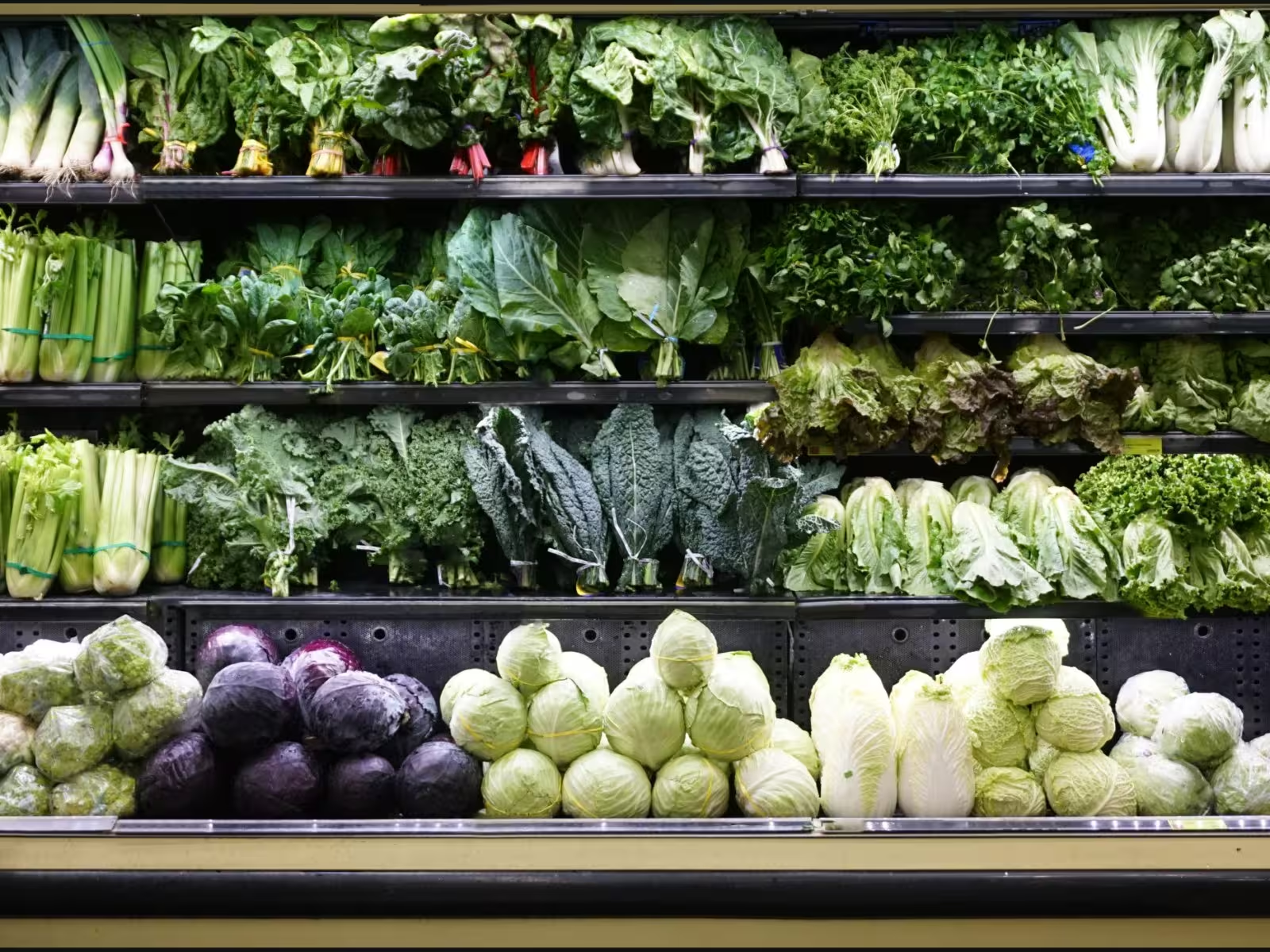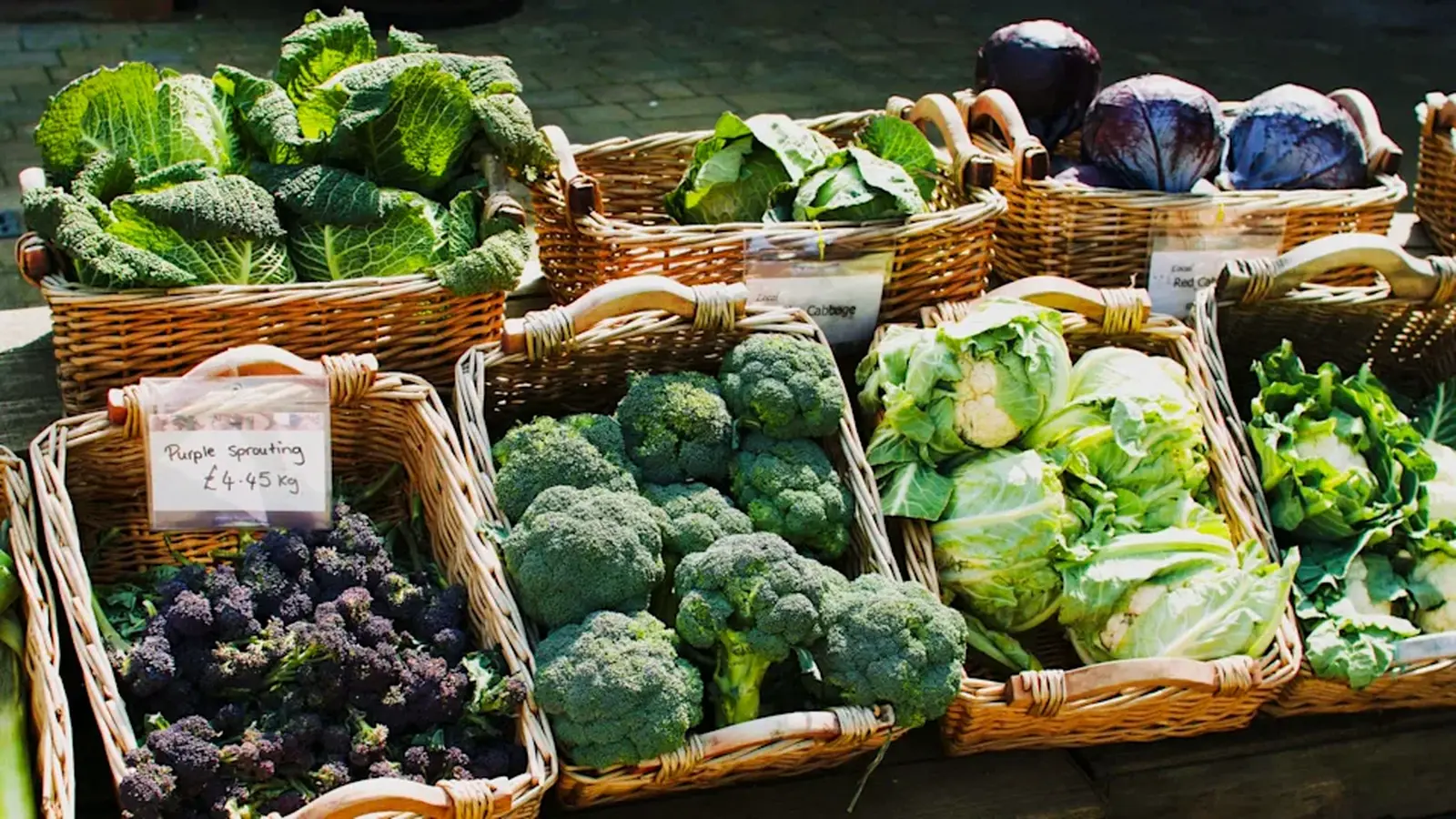5 Minutes
What’s happening: crops under heat stress
Several regions of the United Kingdom are experiencing sustained above-average temperatures and prolonged dry conditions, and farmers are reporting dramatically reduced yields for key vegetables. Broccoli — together with other brassicas such as cauliflower and cabbage — is particularly affected. Multiple growers have told the BBC that warmer-than-usual weather and a sharp fall in rainfall have reduced broccoli yields by more than 50% in some areas.
Ben Andrews, who runs a mixed organic farm near Herefordshire, told reporters that the heads produced this season are often smaller and less uniform than shoppers expect: "You'll be looking at maybe not quite as much availability and maybe needing to accept smaller heads of broccoli or lettuce or cabbage." While many growers remain optimistic that some produce will reach supermarket shelves, Andrews warned that continued dry conditions could make empty shelves a realistic possibility in localized areas.
Why prolonged drought matters for UK food supply
The combination of record warm spells and reduced precipitation has drained rivers, reservoirs and groundwater across parts of England and the wider UK. Several areas have been officially declared in drought. The Met Office reported that mean temperatures in June reached 15.2°C — the warmest June on record for England — and warned that such hot spells are likely to become more frequent with climate change.
Jack Ward, director of the British Growers Association, described current supply pressures: "In some areas, supplies of summer brassicas, cauliflowers, and cabbages are tight. Other root crops, carrots, and onions have been kept going by the use of irrigation, but there are serious concerns about water supplies if the lack of rain continues." Reduced soil moisture and depleted irrigation reserves increase the vulnerability of horticultural systems to continued heat and drought.
Scientific context: heat, water stress and crop physiology
Heat waves and low soil moisture affect vegetable crops through several mechanisms. High temperatures accelerate evapotranspiration (the combined loss of water from soil and plant surfaces), reducing soil water available to roots. For brassicas, heat stress during critical stages of head formation can reduce head size, cause premature bolting (flowering), and impair quality. Groundwater depletion and low reservoir levels also limit irrigation capacity when farmers need it most.
Climate attribution studies cited by the Met Office show that human-driven greenhouse gas emissions have increased the probability of extreme heat events like those observed in recent summers. Burning fossil fuels raises atmospheric concentrations of CO2 and other greenhouse gases, which trap heat and alter the frequency and intensity of heat waves.

Responses, technologies and adaptation measures
Farmers and policymakers are deploying both short-term and longer-term responses. Short-term measures include targeted irrigation, scheduling sowing dates to avoid peak heat, and shifting some plantings to drought-tolerant varieties. Irrigation can sustain root crops such as carrots and onions but relies on available water supplies. Longer-term adaptation options include breeding heat- and drought-tolerant brassica varieties, improving soil organic matter to enhance water retention, precision irrigation systems (drip and subsurface irrigation), and on-farm water storage or rainwater harvesting.
At the national level, the UK is investing in renewable energy and climate adaptation, and has set a net-zero emissions target for 2050. These policies aim to reduce the scale of future warming, but adaptation will be essential to protect short-term food security and agricultural livelihoods.
Expert Insight
Dr. Emily Carter, an agroclimatologist at the Institute for Sustainable Food Systems, commented: "Brassicas are sensitive to both heat and water stress at key developmental stages. What we’re seeing now is consistent with climate model projections: more frequent and intense heat spells will shift risk profiles for many crops. Combining breeding for heat tolerance with smarter irrigation and soil management offers the best practical pathway to reduce yield volatility in the near term." Her team is testing heat-tolerant lines and evaluating water-use efficiency across different cultivation systems.
Conclusion
The current UK drought and record June temperatures have exposed vulnerabilities in horticultural supply chains, with broccoli and other brassicas showing pronounced yield losses. Immediate measures such as efficient irrigation and altered crop management can mitigate some impacts, but sustained investment in adaptation — from crop breeding to water infrastructure — and emissions reductions will be necessary to reduce long-term risks to food supply as extreme heat events grow more frequent under climate change.
Source: yahoo


Leave a Comment